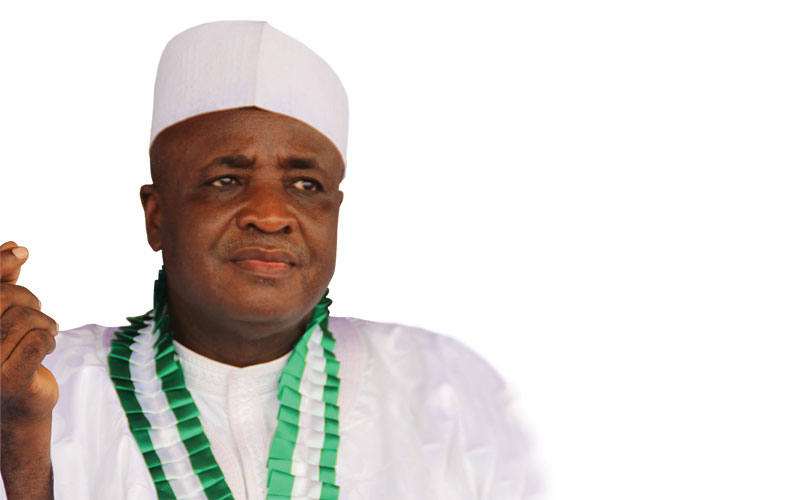A revolution in education and social empowerment is under way in the northernmost state in Nigeria’s northwest, with an emphasis on openness and equal opportunity

Great strides have been made on the path to socioeconomic betterment in Sokoto State in the seven years since the administration led by Alhaji (Dr.) Aliyu Magatakarda Wamakko assumed office on May 29, 2007. In his new capacity as state governor, Dr. Wamakko pledged to transform Sokoto, with poverty and illiteracy reduction, wealth creation, and wider access to education providing the catalysts for sustainable development and empowerment. He affirmed their objectives could be achieved not by expecting handouts or external controls, but by harnessing the talent and potential he knew to be inherent in the state and by applying good governance with astute resource management.
True to the governor’s word, the new administration quickly declared a state emergency in the education sector, initially allocating 22% of the state budget to it and embarking on an infrastructure development program to create a more conducive learning environment.
The state government has since spent more than N3 billion ($18.4 million) on the construction, rehabilitation and expansion of most primary and secondary schools in the state. It also abolished education fees and increased the feeding allowance of its students by 100%, thereby encouraging poorer families to send their children to school.
There has also been a massive increase in the provision of textbooks, science equipment, and other teaching and learning-related materials are being provided to schools across the state. In December 2013, media reports stated that the administration has also approved a N46-million ‘one-laptop-per-child’ pilot program that will introduce students to the world of ICT.
Dr. Wamakko, a former teacher and head teacher before moving to the U.S. in 1977 to study, understands that investing in human capital is also key and that a qualified and motivated teaching force is essential for effective reform. His administration has provided at least 1,000 new teachers in the primary and secondary education sectors each, as well as 300 teachers for Arabic and Islamic boards and more than 200 lecturers and support staff for the Shehu Shagari College of Education and the Polytechnic of Sokoto State.
“With careful planning and prudent management of resources, the nation and the state will be able to achieve a lot,” says Dr. Wamakko. “We have been able to increase enrolment by over 40%, and the number of girls registered at schools by over 40%. We have been able to increase enrolment in universities and tertiary education by over 700%. We now allocate 27-30% of our budget towards education every year and this strategy and investment is showing results. I have been personally going to schools to try and establish what we can do to make up for the shortfalls here and there, and continually improve our education system.”
Many women in the state married young and at the expense of completing their secondary education. This has prompted the creation of women education centers, one in each of the state’s three senatorial districts, where women are encouraged to resume their secondary education, which in turn will qualify them for tertiary-level education. It is giving married women a renewed opportunity to acquire Western-standard education. Now, there are women who passed through this scheme and are graduating with their first or higher degrees, and competing favorably with younger generations in pursuit of a career.
On October 29, 2013, one of the governor’s proudest achievements opened its doors: Sokoto State University. At its inauguration, Dr. Wamakko described the new institution as a legacy to the educational culture of the Caliphate that would beam its light to other parts of the country and beyond. There is also a push to strike national and international alliances between the university and other tertiary-level seats of learning.
Other landmark achievements that instill immense pride in the governor include the Asare water project, empowerment initiatives, targeting the state’s youth and women, and advancing the modernization of the extremely important agriculture sector.
“I want to leave three fundamental legacies,” says Dr. Wamakko. “I want to be remembered for all the good work that I was able to do in education, health, agriculture, youth employment, trade, transport and numerous other sectors. In addition, I want to be remembered as a governor who during his tenure was the people’s servant, and not vice versa. Thirdly, I want to be remembered as a governor who during his tenure was connected with the people.”
The governor is a staunch proponent of ensuring an open, equitable society in Sokoto and it forms another of his administration’s fundamental beliefs. “I lived in the U.S. when I was younger. My first degree studies in Pennsylvania, at Pittsburg University, gave me my first exposure to the world; the experience is still part of my thinking and living. The U.S. is a country where I first understood what is called ‘freedom’. Sokoto has excellent relations with the U.S., where we enjoy a mutual and cordial friendship,” says Dr. Wamakko.
Sokoto State Government is keen to convey internationally that it is the most open state in Nigeria, with equal rights and privileges for everyone. The governor explains: “Based on our history as a capital of an old empire, which extends for thousand of kilometers, the objective is to be as open as before, and to show love, independent of where you come from, or your dynasty, religion, etc. We welcome everyone. People from all over the world and all over Nigeria want to come and live in Sokoto because they are given equal treatment; they are loved and respected and they feel at home. That was the heritage of our ancestors, and in 2007 when I became governor, I said that ‘any Nigerian no matter where they come from is welcome to work and live here.’”
0 COMMENTS